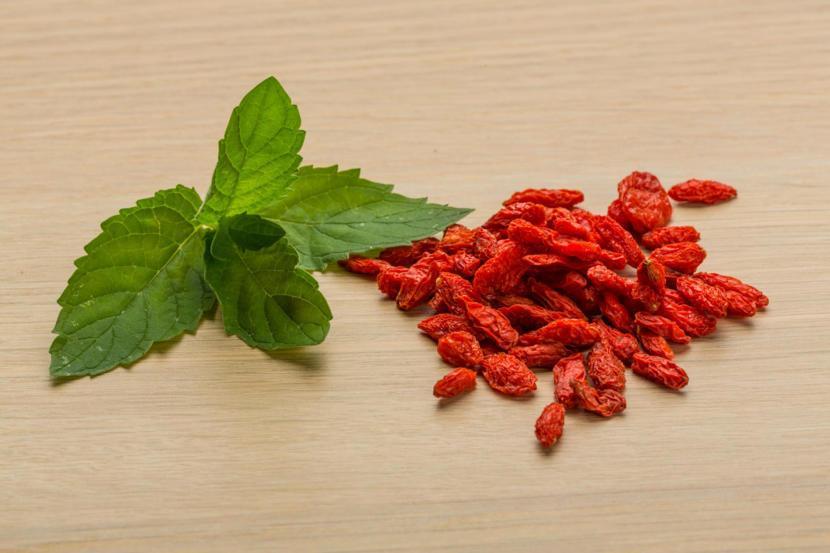What to Know Before Using Berberine
Berberine has been used in traditional Chinese medicine for the treatment of various ailments. Although berberine has a number of health benefits, its use may not be suitable for everyone.

What is berberine?
Berberine is an alkaloid compound extracted from several different plants. It has anti-inflammatory, antibacterial, and immune-boosting properties, and has been used in traditional Chinese medicine for the treatment of various ailments.
Berberine is effective when it comes fighting harmful bacteria, fungi, and protozoa and can be topically used on wounds. It is also commonly used for the treatment of gastrointestinal (GI) tract issues, such as food poisoning and traveler’s diarrhea.
How does berberine work?
When berberine is ingested and taken in by the body, it is then transported into the bloodstream and travels into the cells of the body. Berberine binds to different molecules inside the cells and changes their function. How pharmaceutical drugs work tends to be similar to this process.
Berberine also enables the activation of an enzyme within the cells called adenosine monophosphate-activated protein kinase (AMPK), which is also regarded as a metabolic master switch. This enzyme plays a key role in the regulation of metabolism and is found within the cells of different organs, such as the heart, brain, liver, kidneys, and muscles.
The activation of AMPK is quite important to health since it plays a significant role in reducing oxidative stress, promoting glycolysis, and reversing insulin resistance. Berberine and metformin, which is a drug commonly used for polycystic ovary syndrome (PCOS) and diabetes, activate AMPK.
Berberine also affects many different molecules inside the cells and may affect which specific genes are turned on or off.
What you should know before taking berberine
Berberine is unsafe to give to newborns since it can cause kernicterus, which is a rare type of brain damage often seen in newborns with severe jaundice. Jaundice means yellowing of the skin due to high bilirubin levels in the blood. Bilirubin is normally removed by the liver, but berberine may interfere with the liver’s role of fast bilirubin removal.
It is also not recommended for pregnant women. According to researchers, berberine might cause harm to the fetus since it can cross the placenta. The intake of berberine while breastfeeding is also not recommended because berberine can be transferred through breast milk and might harm an infant.
Aside from precautions on pregnancy and breastfeeding, berberine should also be used with caution in people who are diagnosed with diabetes. Berberine can cause hypoglycemia or low blood sugar. If berberine is taken by people with diabetes and use insulin or other medications to control their blood sugar, berberine may contribute to having abnormally and dangerously low blood sugar levels.
People with low blood pressure should also use berberine with caution as it might also cause abnormally low blood pressure levels.
Dosing Considerations
The recommended dose of berberine usually depends on the user’s age, condition, and overall health. There is also not enough information when it comes to determining the appropriate dosage recommendation for berberine.
Make sure to consult your doctor or pharmacist before using berberine. It is also important to note that natural or herbal products are not always necessarily safe to take and dosages are still very important.
Health Benefits of Berberine
1. Potential treatment for diabetes
Type 2 diabetes has become increasingly common in recent years and causes millions of deaths each year. This disease is characterized by high blood sugar levels due to the lack of insulin or by insulin resistance.
Having high blood sugar levels for a long time can damage the body’s tissues and organs and cause many health problems. According to studies, berberine can significantly reduce blood sugar levels in people diagnosed with type 2 diabetes. Berberine’s effectiveness is also comparable to metformin, which is a popular medication for diabetes.
2. Lowers high cholesterol levels
Evidence shows that berberine can help lower the cholesterol levels of people who have high cholesterol. Studies have also shown berberine’s effectiveness when it comes to reducing up to 15 percent of apolipoprotein B, which is one of the risk factors for heart disease.
3. Boosts heart health
When berberine activates AMPK, it helps slow down the release of free fatty acids, which prevents harmful fat deposits and lowers lipid levels. It also boosts fat burning within the mitochondria as well as stimulates nitric oxide (NO) release. Nitric oxide (NO) is a molecule that improves blood flow, normalizes blood pressure levels, relaxes arteries, and helps protect against atherosclerosis.
Berberine is also known to dilate blood vessels for improved heart function and increased exercise capacity.
4. Fights obesity
Berberine can also help improve the functions of hormones, such as leptin, insulin, and adiponectin, and has the ability to inhibit fat storage.
In one study, obese adults were given 500 mg of berberine three times a day for 12 weeks. The results of this study show that each subject lost an average of 5 pounds with reduced triglyceride and cholesterol levels.
Other Health Benefits
Berberine’s other health benefits include:
- Antidepressant: Studies have shown that taking berberine may help combat depression.
- Anti-inflammatory and antioxidant: Berberine has also shown potent anti-inflammatory and antioxidant properties, particularly in the treatment of diabetes mellitus.
- Anticancer: Both animal and test tube studies have shown the effectiveness of berberine when it comes to the reduction of growth and spread of malignant tumors.
- Prevents fatty liver: Berberine helps reduce the build of fat in the liver and prevents nonalcoholic fatty liver disease.
These current pieces of evidence are very promising, although more research studies are still needed to confirm and rate the effectiveness of berberine use.
References
Winder WW. and Hardie DG. AMP-activated protein kinase, a metabolic master switch: possible roles in type 2 diabetes. Am J Physiol. (1999)
Chang W, Chen L, Hatch GM. Berberine as a therapy for type 2 diabetes and its complications: From mechanism of action to clinical studies. Biochem Cell Biol. (2015)
Yin J, Xing H, Ye J. Efficacy of berberine in patients with type 2 diabetes mellitus. Metabolism. (2008)
Cicero AF, Rovati LC, Setnikar I. Eulipidemic effects of berberine administered alone or in combination with other natural cholesterol-lowering agents. A single-blind clinical investigation. Arzneimittelforschung. (2007)
Yang J, Yin J, Gao H, et. al. Berberine improves insulin sensitivity by inhibiting fat store and adjusting adipokines profile in human preadipocytes and metabolic syndrome patients. Evid Based Complement Alternat Med. (2012)
Dong H., et. al. Berberine in the Treatment of Type 2 Diabetes Mellitus: A Systemic Review and Meta-Analysis. Evidence-Based Complementary and Alternative Medicine. (2012)












